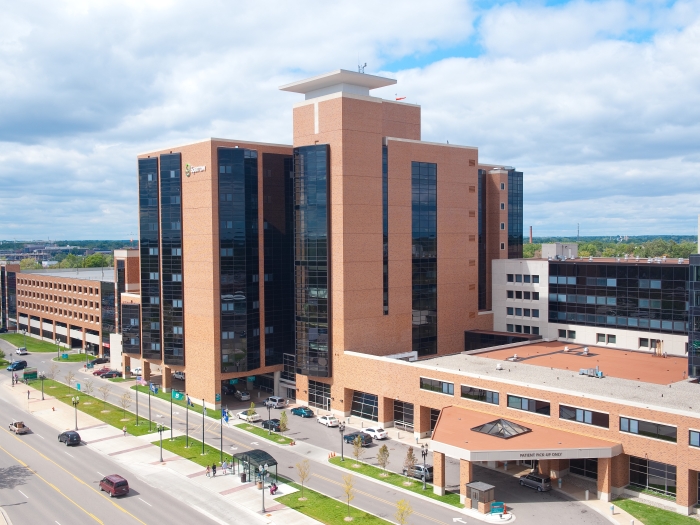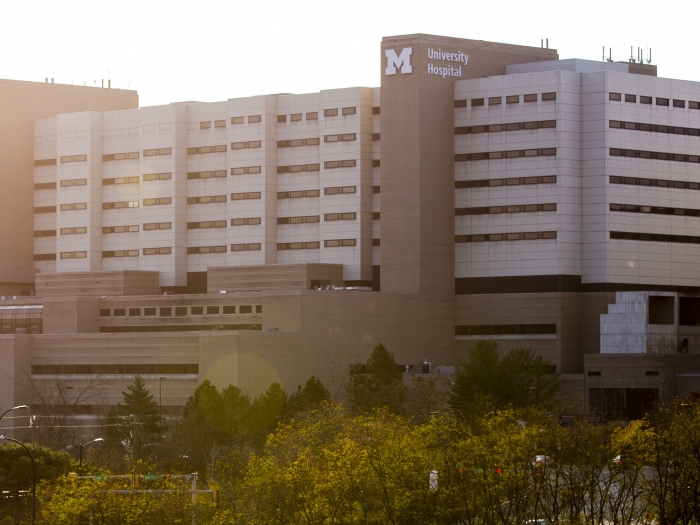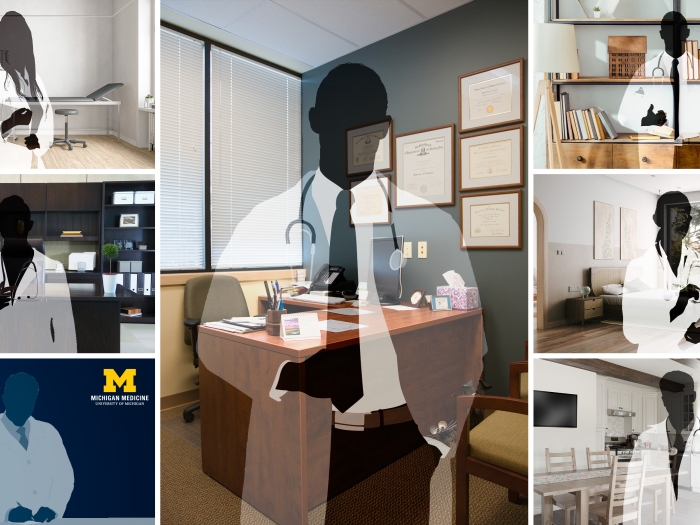New policies designed to minimize COVID-19 spread as cases increase statewide
Author |
Michigan Medicine has tightened visitor restrictions at its hospitals and clinics to continue to minimize COVID-19 spread and keep patients and staff safe.
As of Wednesday, Nov. 25, no visitors will be allowed with adult patients in Michigan Medicine hospitals, except when medically necessary.
There are exceptions for end-of-life care, labor and delivery and other situations, which are detailed at this link.
This policy change is added to restrictions already announced:
- No visitors are allowed with adult emergency department patients, except when medically necessary.
- At C.S. Mott Children’s Hospital, two visitors are allowed for pediatric patients. But family and other visitors are required to wear a mask (covering their mouth and nose) at all Michigan Medicine properties. This includes in a patient room and throughout the facility. Patients who can tolerate a mask must wear one when a health care worker is present in their room.
- In clinics, no visitors will be allowed for adult patients unless the patient has a cognitive or physical impairment that requires assistance. One primary caregiver is allowed to accompany each pediatric patient to an appointment, unless an additional aide or assistant is required.
“COVID-19 transmission rates continue to climb in the community. Our top priority is the safety of our patients and staff, and to minimize the spread of disease, we need to take this additional step,” said Laraine Washer, M.D., Michigan Medicine’s medical director of infection prevention and epidemiology.
“We know this is difficult for our patients and their families and friends. But we need to continue to keep our Michigan Medicine facilities safe for all of our patients,” Washer said. “We need to continue to keep our Michigan Medicine facilities safe for all of our patients.”
Since the beginning of the pandemic, Michigan Medicine has been taking steps to protect staff and patients including screening our patients at our hospitals and clinics for symptoms; moving furniture to encourage social distancing; vigilant attention to cleaning and disinfection; and following established guidelines to minimize the spread of disease.
“Limiting the risk of transmission of infection has always been a critical priority at Michigan Medicine. And I want to reassure the public that if you need health care for a new problem or for continuing care of a chronic problem, you should not put it off. We have teams dedicated to keeping our patients and staff safe in our buildings,” Washer said.
“It is important to not delay emergency or chronic care.”
Washer encourages people to stay home this Thanksgiving and avoid gatherings with those outside your household.
“We need everyone’s help with this. A large surge of patients requiring hospitalization for COVID has the potential to overwhelm health systems.”
About Michigan Medicine: At Michigan Medicine, we advance health to serve Michigan and the world. We pursue excellence every day in our three hospitals, 125 clinics and home care operations that handle more than 2.3 million outpatient visits a year, as well as educate the next generation of physicians, health professionals and scientists in our U-M Medical School.
Michigan Medicine includes the top ranked U-M Medical School and the University of Michigan Health System, which includes the C.S. Mott Children’s Hospital, Von Voigtlander Women’s Hospital, University Hospital, the Frankel Cardiovascular Center and the Rogel Cancer Center. Michigan Medicine’s adult hospitals were ranked no. 11 in the nation by U.S. News and World Report in 2019-20 and C.S. Mott Children’s Hospital was the only children’s hospital in Michigan nationally ranked in all 10 pediatric specialties analyzed by U.S. News and World Report for 2019-20. The U-M Medical School is one of the nation's biomedical research powerhouses, with total research funding of more than $500 million.

Department of Communication at Michigan Medicine





